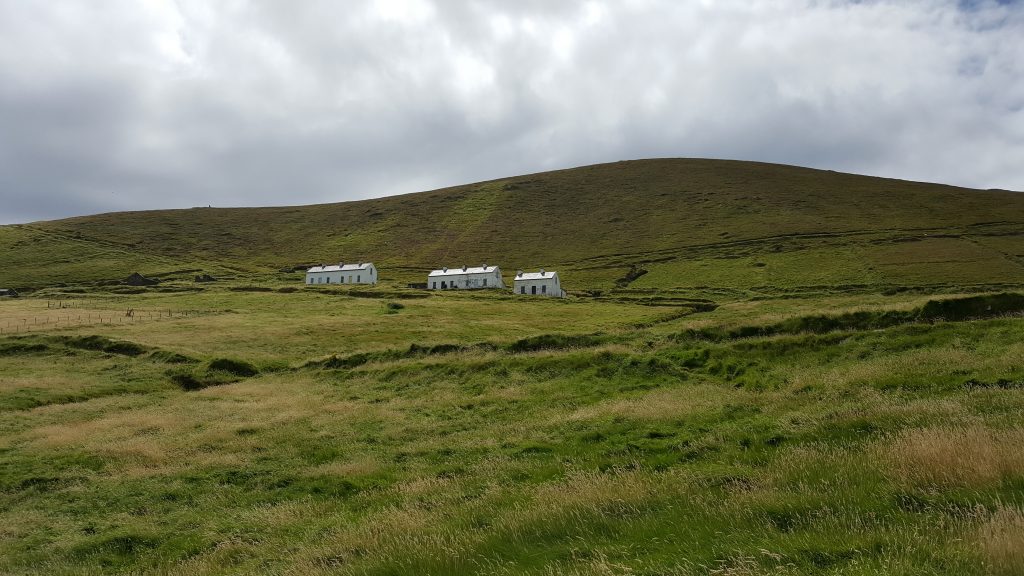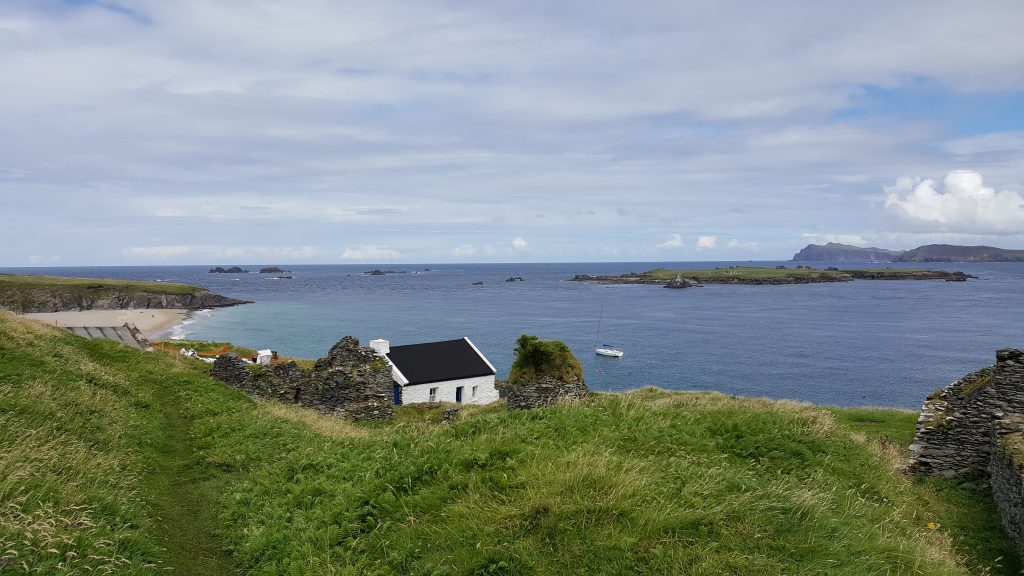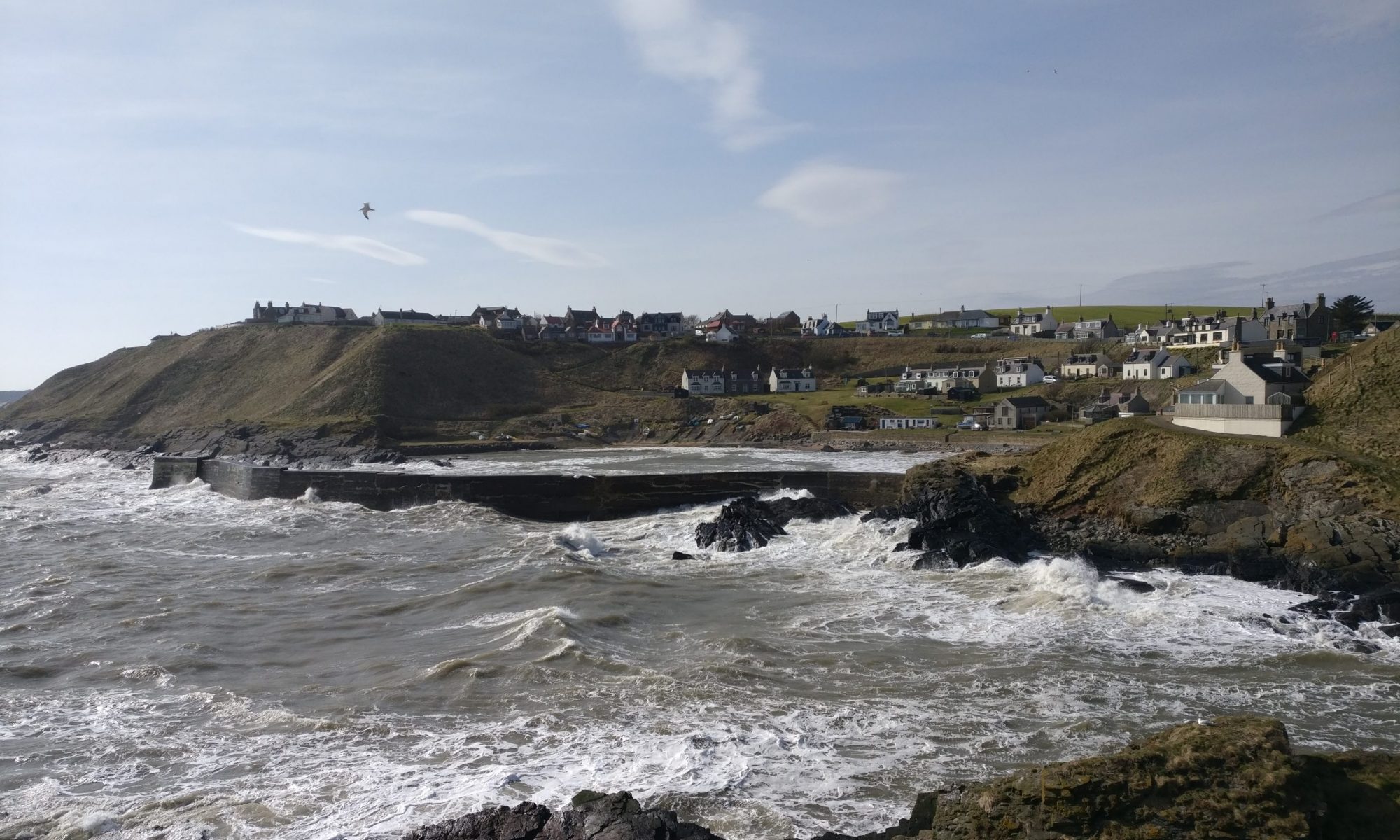Contributed by Christina Noble (The James Hutton Institute)

Earlier this year in a pre-Covid-19 Ireland, a job advert for working and living on a remote island for six months off the coast of Co. Kerry went viral attracting over 24,000 job applications from around the world. The advert was pitched as a ‘dream job’, advertising a unique once-in-a lifetime opportunity to be caretaker(s) of the few holiday cottages available for visitors and the café on the Great Blasket Island. The previous couple who had taken up the post cautioned that there was a notable downside to the position [1]. Their decision to share photos and videos from their time on the island was largely well received, but was sometimes met with negative feedback from those who felt the couple were commercialising the island and risking increasing tourist numbers when they had no apparent ‘claim’ to do so. The comments also spoke of the couple’s lack of Gaelic language skills which strongly suggested they had less right than a native Gaelic speaker over sharing their images and posts of the island. The Blasket Islands were home to a Gaelic speaking community that was disbanded in 1953 due to a diminishing population, aided by increasing emigration.
Moving and relocating to a remote island for a certain time I’m sure is not something one usually does without some research or realisation that maybe this might be a challenge? This is no doubt partly the appeal, a desire to escape everyday life for a time, but for those who live and work more permanently in not only island communities but other remote and rural places, that sense of ‘escapism’ probably seems a world away and what places mean for some will be different to others. This also serves as a reminder that within rural places, movement of whatever kind whether incoming or outgoing is perhaps felt more keenly as numbers here matter.

My PhD research took me to the western and southern counties of Ireland, including Co. Kerry, meeting with return migrants who were individuals who had grown up in Ireland, emigrated, and returned back during the mid-90s and 2000s. The majority too, importantly returned to the villages and rural areas where they grew up. I was keen to explore what return migration actually means for those who move, their sense of belonging and identity and this in turn led me to think more about the importance of rural Ireland to their reasons for return. Nearly all of the participants interviewed after being back in Ireland felt they were caught between different places and times, and it took a few years to feel that they were belonging to that place once again. Often the images and their ideas of the places that they were returning to didn’t match up neatly with the reality, and often in less tangible ways such as the rhythms of daily life. The participants themselves reflected that they were Irish alright but within a specific place or community sometimes not local enough, nor, fully a newcomer. Being caught between two different places was unsettling and any idea of an easy return was swiftly quashed. It also threw into question our tendency to imagine a return as permanent, removing the potential to move again.
A study in Whalsay, Shetland in 1980, saw Cohen reflect upon what it means to belong to a place, to be a part of the community, which he summarised as being part of a jigsaw puzzle. Everyone is part of a whole, so that if one piece is missing, it is felt by everyone. Whilst the jigsaw analogy can get sticky when we think about new pieces and changes over time, it does help to think how a singular act can have further reaching consequences. For the Blasket Islands, and a lot of rural Ireland so deeply affected by the legacy of emigration, movement of any kind can evoke deeply emotive feelings. Yet, there is a marked difference between a visitor for a day or two and someone planning to relocate for the foreseeable future. Furthermore rural places are themselves never static to begin with, and you can be certain of change regardless, it just may come about at a different pace.
[1] Job advert was placed on Facebook before going viral. Article from Boland, R., (2019) Six months on the Blasket: ‘People accused us of ruining it’ in the Irish Times, available at https://www.irishtimes.com/life-and-style/people/six-months-on-the-blasket-people-accused-us-of-ruining-it-1.4054146 [Accessed 26.02.2020]

This is a fascinating in-depth piece of research! It is very satisfying in this day and age when our digital world and other factors compel us to get faster and faster in our thoughts and actions. Reading a comment like this is very rewarding: full of insight and enriching.
My grandfather and grandmother and my father and mother and brother were born there too. My mother had alot of intersting story when i was young about her life li found her life very different very unique.she left the island when she was teenager and worked in dublin.which she enjoyed and she loved to travel…